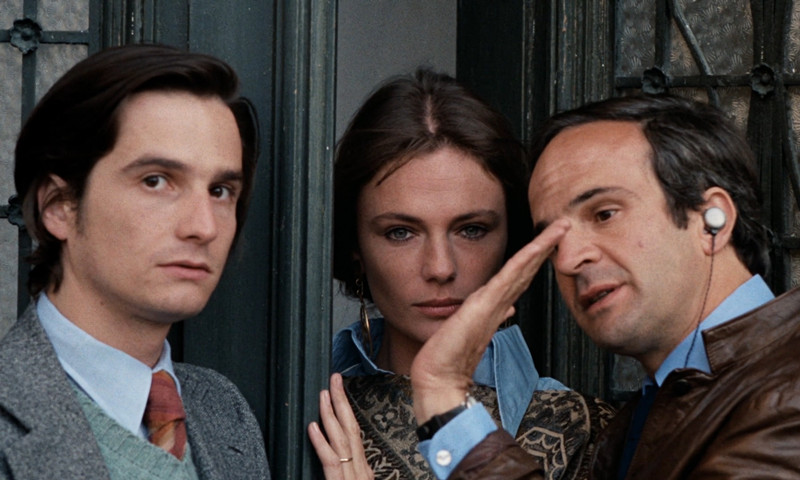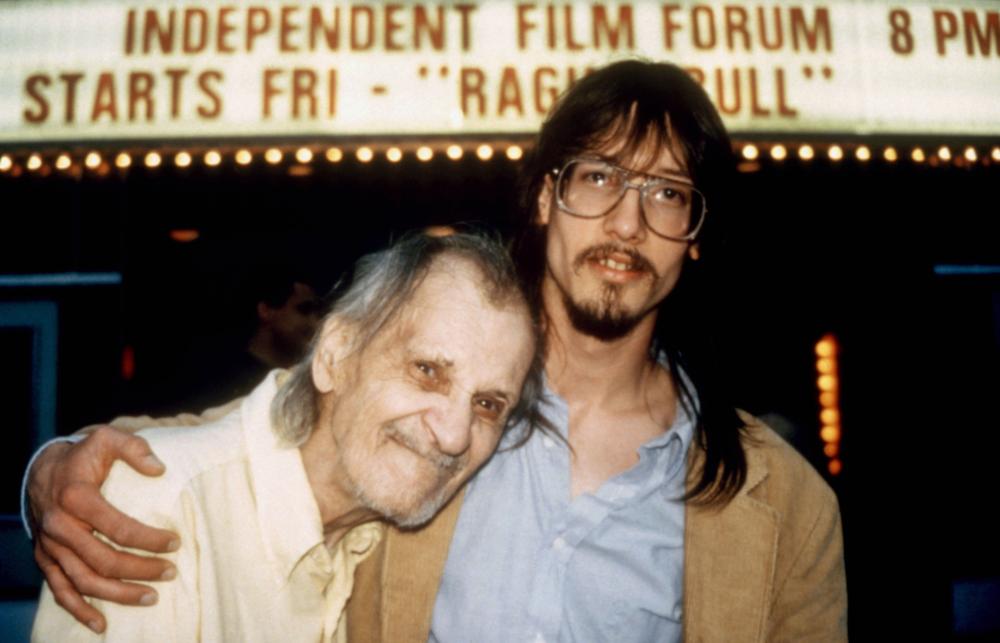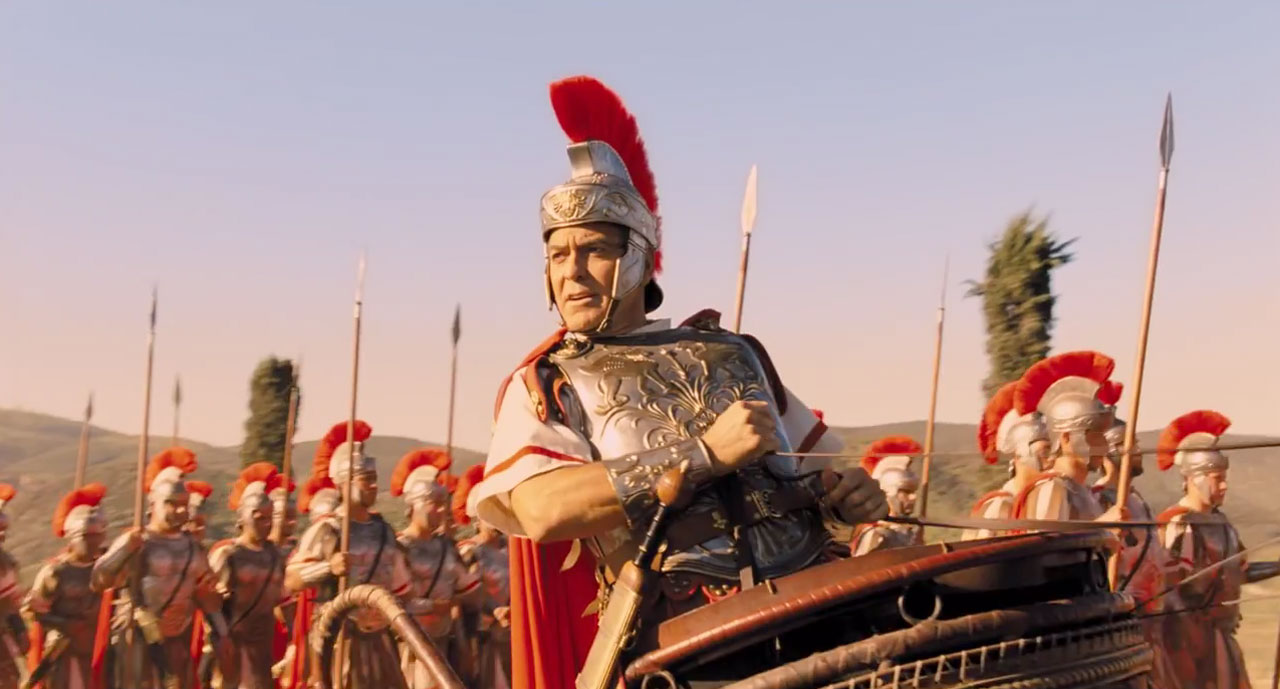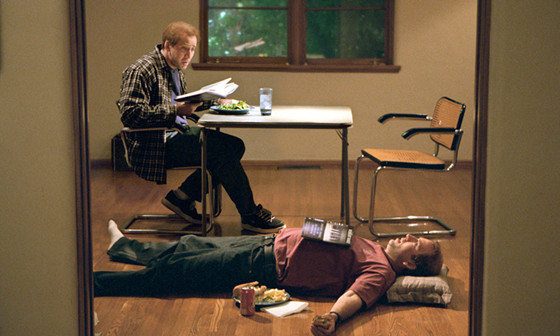
As long as there have been movies, there have been movies about movies. Working in the film business themselves, writers and directors realised they didn’t have to look very far when it came to finding material: the scripts just wrote themselves.
Nonetheless, it is particularly refreshing to observe the dream machine pulling back the veil and looking at itself with either a celebratory, critical or even jaundiced eye, in the process creating self-reflexive works that make the audience ask key questions about cinema as a medium.
Additionally, whether its overdramatic actors, control-freak directors, alcoholic screenwriters, or unscrupulous producers, the world of filmmaking provides a plethora of engaging characters both on and off the screen. Its inner-workings show it to be a collaborate medium unlike any other, relying upon a unique mixture of teamwork, good luck, and a little bit of magic in order to achieve a successful final result.
In fact, films about films are so popular that they have managed to become a genre unto themselves, encompassing arthouse, documentaries, satire and mainstream entertainment in their look at what goes on beyond the scenes, revealing that the finished product takes a lot of persistence, hard work and visual trickery in order to look the way it does. Below is the top ten movies that look at the many different aspects of filmmaking, going all the way from a film’s inception to its final premiere.
10. Stardust Memories (Woody Allen, 1980)

Stardust Memories has long been seen as Woody Allen riffing off many of the same themes as Fellini’s 8 1/2 — it even opens with a deliberate homage to that train scene — but it deserves to be seen as a remarkable, darker work of art in its own right. Coming straight after the beloved Manhattan, Stardust Memories is a key elegy not only for his own comic 70s output but for the extravagances of the Hollywood New Wave as a whole.
It asks the moral question of whether or not one should make films when there are people in the world who don’t even have enough food to eat, and whether a work of art can be enough to effect real change in the world.
Yet naturally, the film also sees Allen satirising the narcissism of directors as well as the fawning coverage they may have at retrospectives of their own work. There are no easy answers here, only more and more questions about what it takes to be a truly great artist, and whether that even matters when your own personal life is in a complete shambles.
Initially dividing fans for its depiction of a director wanting to move on with his work but being told that his “earlier, funnier” films were better, Stardust Memories has taken its time to be considered not only one of Allen’s finest films, but also a great film about films in its own right.
9. American Movie (Chris Smith, 1999)

What do you do when you want to make a film but you have no money, no one really wants to work with you, you only have a mediocre talent and your concept isn’t strong enough to ensure any future funding? The answer, obviously, is to keep trying because eventually, one day, you will find your success. This is the message to be found in American Movie, which not only doubles up as a great making-of documentary, but also a testament to the unique stubbornness of the human spirit.
This excellent film stars Mark Borchardt, a perpetually in debt, alcoholic filmmaker who lives in a trailer in Milwaukee, who borrows money off his uncle in order to finally finish his horror short Coven, a forty minute film three years in the making.
Enlisting friends to be his actors and his mother to be his cinematographer, and working two jobs in order to support his passion, American Movie reveals Borchadt to be one of the most stubborn filmmakers the world has ever seen, suggesting that if you can’t get your dream project off the ground, then maybe you simply aren’t trying hard enough.
Despite the fact that Coven, although finished, never made it as a successful short, American Movie salutes Borchardt for sticking it through to the end, in turn making the film an exquisite rendering of the American dream in all its glory.
8. Hail Caesar! (The Coen Brothers, 2016)

Whilst Singin’ In The Rain expertly shows how Hollywood thinks of itself so well, Hail Caesar! — although filled with some of the same love for the old studio system — also depicts its darker side in the form of fixer Eddie Mannix (Josh Brolin) whose average day is upended by the news that the film’s star (George Clooney) has suddenly gone missing.
As a business, Hollywood likes to show the best version of itself, meaning that jack-of-all-trades Mannix, based on a real person, is as much a spin doctor as someone with his clients’ best interests at heart; giving false information to the press, crowdsourcing key advice, and having a knack for making certain problems simply go away.
Yet, he is also a clever character to deploy when introducing us to this world, as his daily life brushes us up against the different types of films being made in that era. From Westerns to Period Dramas to Historical Epics, Hail Caesar! looks at it all with a loving, humorous eye.
Naturally, for a film about Hollywood’s Golden Era, Hail Caesar! casts some of the most compelling contemporary actors and actresses in make the era look authentic, including Channing Tatum as a heartthrob with incredible dancing abilities, Scarlett Johansson as a grinning mermaid and Jonah Hill as the studios go-to surety agent. Throwing in a potential communist conspiracy, and Hail Caesar! has already cemented itself as another Coen Brothers classic.
7. Adaptation (Spike Jonze, 2002)

Starring Nicolas Cage not once but twice, Adaptation, penned by one of Hollywood’s biggest weirdos, Charlie Kaufman, depicts the struggle inherent in the screenwriting process, turning an adaptation of a non-fiction book called The Orchid Thief, which is ostensibly about flowers, into a generic thriller, in turn satirising the process of big-budget American filmmaking.
It deserves credit simply for how weird it is without losing sight of what makes an engaging entertainment, relying on one of Nicolas Cage’s best performances as Charlie Kaufman himself, a neurotic screenwriter whom upon realising that the source material doesn’t actually have any plot suffers from writers block and a severe case of self-loathing.
It makes fun of the screenwriting process by having him attend seminars on screenwriting itself, pulling back the cloak on what goes on inside one of Hollywood’s brightest writers.
Feeling, with the angle it takes, that the film could go any possible way, Adaptation consistently surprises, eventually delivering on a rumination on what it takes to make a best-selling screenplay.
Remarkably, when Kaufman was working on the script, he didn’t tell anyone apart from Spike Jonze the way it was going, as he was required to deliver on a more traditional version of the book. Thankfully, he stuck to his guns, as the final result, in all its strange glory, is much more satisfying than any standard adaptation ever could be. A must see for anyone struggling with their screenplay.
6. Singin’ In The Rain (Stanley Donen, Gene Kelly, 1952)

Detailing the infamous switch in Hollywood from the silent era to the sound one, Singin’ In The Rain is Tinseltown’s finest evocation of its own movie-creating process. Pitching the frantic antics of Gene Kelly against the infectious likability and enthusiasm of Debbie Reynolds, the film is filled to the brim with in-jokes about what many people thought about the transition to sound — namely that it’ll never last.
Yet soon the cast are having to capitalise on their rivals’ success with The Jazz Singer by changing the name of silent movie The Duelling Cavalier to the more appropriate The Dancing Cavalier. The only problem: co-star Lina Lamont (Jean Hagen) has a terrible voice. How they navigate the various issues that come with the new technology is what elevates Singin’ In The Rain into an aesthetic masterpiece as much as an important historical document.
Filmed in dazzling technicolor, stuffed full of incredible choreography (the standout being “Make ‘Em Laugh”) and a general sense of loving what they do, Singin’ In The Rain is a fine ode to what makes the movies so special.
What is even more remarkable is how practically every song (with the exception of “Moses Supposes”) in the film came from a previous Hollywood movie, and many of the sets were taken from the MGM storage vaults, not only creating a strong case against the idea of originality, but also working to make it the quintessential anthology of the early musical era.